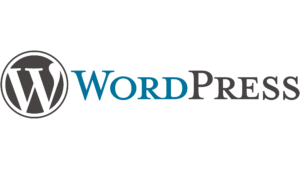In today’s digital era, having a well-designed and functional website is crucial for the success of any business. However, with a plethora of website platforms available, choosing the right one can be overwhelming. This article aims to guide you through the process of selecting the best platform for your business website, taking into account various factors that influence your decision.
Factors to Consider when Choosing a Platform
1. Cost
When considering a business website platform, it’s essential to evaluate the cost associated with both the initial setup and long-term maintenance. Some platforms offer free plans, while others require a subscription or upfront payment. Additionally, you should factor in expenses related to domain registration, hosting, themes, plugins, and ongoing updates.
2. Ease of Use
The platform’s user-friendliness plays a crucial role, especially if you don’t have technical expertise. Look for intuitive interfaces, drag-and-drop editors, and easy customization options that allow you to create and update your business website effortlessly.
3. Customization Options
Flexibility in design and customization is vital to ensure that your business website aligns with your brand identity. Consider the platform’s available templates, themes, and the ability to modify layouts, colors, fonts, and other visual elements.
4. SEO-Friendliness
A platform that prioritizes search engine optimization (SEO) can significantly impact your business website’s visibility in search results. Look for platforms that offer SEO tools, clean code structure, mobile optimization, and customizable meta tags to enhance your business website’s ranking potential.
5. Scalability
As your business grows, your business website’s needs may change. Ensure that the platform you choose can accommodate your future requirements, such as increased traffic, additional features, or expanding product catalogs.
6. Security
Protecting your business website and customers’ data should be a top priority. Look for platforms that offer robust security measures, including SSL certificates, regular backups, and protection against malware and hacking attempts.
7. Support and Updates
Choose a platform that provides reliable customer support, whether through documentation, tutorials, forums, or direct assistance. Regular updates and bug fixes indicate a platform’s commitment to improving user experience and addressing potential vulnerabilities.
8. Integration with Third-Party Tools
Consider the ease of integrating your business website with essential third-party tools like payment gateways, email marketing software, CRM systems, and social media platforms. Seamless integration can streamline your business operations and enhance customer engagement.
9. Mobile Responsiveness
With the increasing use of mobile devices, your business website must be responsive and provide an optimal browsing experience across different screen sizes. Ensure that the platform offers responsive design options or dedicated mobile templates.
10. E-commerce Functionality
If you plan to sell products or services online, choose a platform that provides robust e-commerce functionality. Look for features such as shopping carts, secure payment gateways, inventory management, shipping options, and order tracking.
11. Analytics and Tracking
To monitor your business website’s performance and make data-driven decisions, it’s crucial to have access to analytics tools. Look for platforms that offer built-in analytics or easy integration with popular tracking services like Google Analytics.
12. Content Management System
A reliable content management system (CMS) simplifies the process of creating, editing, and organizing your website’s content. Look for platforms that offer intuitive CMS interfaces, easy content publishing, and advanced editing capabilities.
13. Community and Resources
Being part of an active community can provide valuable insights, resources, and support. Consider platforms with a thriving user community, extensive documentation, tutorials, and online forums to help you navigate any challenges.
14. Reviews and Reputation
Researching user reviews and the platform’s reputation can give you insights into its performance, reliability, and customer satisfaction. Look for platforms with positive reviews and a track record of delivering quality websites.
15. Future Growth Potential
Finally, consider your long-term goals and how the platform aligns with your vision for the future. Choose a platform that allows for flexibility, scalability, and easy migration if needed.
Popular Website Platforms
1. WordPress

Pros:
- Highly Customizable: WordPress offers a vast selection of themes and plugins that allow you to customize the design and functionality of your business website according to your specific needs and preferences.
- Excellent SEO Capabilities: WordPress is known for its strong emphasis on search engine optimization (SEO). It provides various tools and features, such as customizable meta tags, clean code structure, and mobile optimization, which help improve your business website’s visibility in search engine rankings.
- Extensive Community Support: With a large and active user community, WordPress offers extensive support through forums, documentation, tutorials, and user-contributed resources. You can find answers to your questions and connect with other users for guidance and assistance.
- User-Friendly Interface: WordPress has an intuitive and user-friendly interface, even for beginners. Its dashboard provides easy access to various features and settings, allowing you to create and manage content without requiring advanced technical knowledge.
- Cost-Effective: WordPress itself is an open-source platform available for free. You can start with the free version and upgrade to premium themes or plugins as needed. Additionally, the wide availability of themes and plugins created by the community provides affordable options for enhancing your website’s functionality.
Cons:
- Regular Updates and Maintenance: As with any software, WordPress requires regular updates to ensure security, performance, and compatibility. Failing to keep your WordPress installation, themes, and plugins up to date may expose your website to vulnerabilities.
- Learning Curve: While WordPress offers a user-friendly interface, mastering all its features and customization options may require some learning and experimentation, especially for beginners. It may take time to become familiar with the platform and make the most out of its capabilities.
- Customization Complexity: While WordPress provides a wide range of customization options, advanced customizations may require technical knowledge or the assistance of a developer. Complex modifications to themes or plugins may involve coding or configuration changes beyond the scope of basic settings.
- Quality and Performance Variability: As an open-source platform, the quality and performance of themes and plugins can vary. While there are many reputable options available, some themes or plugins may have limited support, compatibility issues, or lower-quality code, which could affect your business website’s performance.
2. Shopify

Pros:
- E-commerce Focus: Shopify is built specifically for e-commerce, offering a comprehensive set of features tailored to online selling. It provides tools for inventory management, order processing, secure payment gateways, and shipping options, making it easy to run an online store.
- User-Friendly Interface: Shopify’s interface is intuitive and easy to navigate, even for beginners. It offers a drag-and-drop store builder, allowing you to create and customize your website without the need for coding or technical expertise.
- Secure and Reliable: Security is a top priority for Shopify. It provides reliable hosting, SSL certificates for secure transactions, and regular security updates. This ensures that your customers’ data and transactions are protected.
- App Store: Shopify has an extensive app store with a wide range of plugins and extensions. These apps allow you to add additional functionalities and integrate with third-party tools such as email marketing, customer support, analytics, and more, expanding the capabilities of your online store.
- Scalability: Shopify offers scalability, allowing your online store to grow as your business expands. It can handle high-volume sales and traffic without compromising performance or the customer experience. You can easily add products, create collections, and manage inventory as your business grows.
Cons:
- Customization Limitations: While Shopify provides a range of customizable themes and templates, the level of customization can be limited compared to other platforms. Advanced design modifications may require knowledge of Shopify’s Liquid templating language or the assistance of a developer.
- Monthly Subscription Fees: Shopify operates on a subscription-based model, with various pricing plans available. While the basic plan is affordable, additional fees can be incurred for certain features or high-volume sales. It’s important to consider the ongoing cost when budgeting for your online store.
- Dependency on Shopify’s Platform: With Shopify, your online store is hosted on its platform. This means you are dependent on their infrastructure and must adhere to their terms and conditions. Customizations beyond the available options may be limited, and migrating your store to another platform can be challenging.
- Less Flexibility for Non-E-commerce Elements: While Shopify is excellent for e-commerce, it may have limitations when it comes to non-e-commerce aspects of a business website, such as content-heavy pages or blogging functionality. It is primarily designed for businesses focused on selling products or services online.
3. Wix

Pros:
- User-Friendly Interface: Wix offers an intuitive and user-friendly interface that allows users to easily create and customize their business websites. Its drag-and-drop editor enables you to visually design and arrange elements on your web pages without the need for coding skills.
- Wide Range of Templates: Wix provides a vast collection of professionally designed templates across various industries and website types. These templates serve as starting points, providing a foundation for your business website’s design and structure. They can be customized to match your brand identity and specific requirements.
- Visual Design Options: With Wix, you have extensive design control over your website. You can customize layouts, fonts, colors, backgrounds, and other visual elements to create a unique and visually appealing business website that aligns with your brand.
- Affordability: Wix offers a range of pricing plans, including a free plan with limited features. This makes it an affordable option for individuals and small businesses looking to establish an online presence without a significant upfront investment.
- Mobile Responsiveness: All Wix templates are designed to be mobile-responsive, ensuring that your website looks and functions well on different devices and screen sizes. This is crucial in today’s mobile-centric landscape.
Cons:
- Limited Scalability: While Wix is suitable for small to medium-sized websites, it may have limitations when it comes to scaling up. The platform may not be as robust as other options for larger, more complex websites with high traffic or advanced functionality requirements.
- Less Flexibility for Customization: Although Wix offers a range of customization options, it may have limitations compared to platforms that provide more advanced coding capabilities. Customizing certain aspects of your website beyond the available options may require workarounds or the assistance of Wix experts.
- Dependency on Wix’s Infrastructure: When using Wix, your website is hosted on its servers, which means you are reliant on its infrastructure and technology. This limits your control over server management and may result in occasional downtime or limitations on specific features.
- Less SEO Flexibility: While Wix provides basic SEO features and allows you to optimize your website, it may have limitations compared to more specialized SEO platforms. Advanced SEO tactics or technical optimizations may require additional work or plugins.
4. Squarespace

Pros:
- Sleek and Modern Designs: Squarespace is known for its visually appealing and modern designs. It provides a wide range of professionally crafted templates with sleek and polished aesthetics, making it a popular choice for businesses and individuals seeking an elegant online presence.
- User-Friendly Interface: Squarespace offers an intuitive and user-friendly interface that allows users to easily create, edit, and manage their websites. Its drag-and-drop editor and visual interface make it accessible to beginners and those without coding knowledge.
- Reliable Hosting and Security: Squarespace handles hosting and security for your business website, ensuring reliable performance and protecting your data. It includes SSL certificates for secure transactions and provides regular updates and maintenance to keep your business website secure and up to date.
- Integrated E-commerce Functionality: Squarespace offers built-in e-commerce features, allowing you to create and manage an online store easily. It provides tools for product management, inventory tracking, order processing, and secure payment gateways, making it suitable for businesses looking to sell products online.
- Mobile Responsiveness: All Squarespace templates are designed to be mobile-responsive, ensuring that your business website looks and functions well on different devices and screen sizes. This is crucial in today’s mobile-centric landscape where mobile browsing is prevalent.
Cons:
- Limited Third-Party Integrations: Squarespace has a more limited range of third-party integrations compared to some other platforms. While it offers essential integrations, such as with popular email marketing services and social media platforms, it may have fewer options for niche or specialized tools.
- Less Customization Flexibility: While Squarespace provides a range of customization options, it may have limitations compared to platforms that offer more advanced coding capabilities. Customizing certain aspects of your business website beyond the available options may require workarounds or the assistance of Squarespace experts.
- Higher Pricing Plans: Squarespace’s pricing plans may be higher compared to some other website platforms. While it offers a range of plans to cater to different needs, the cost may be a consideration for budget-conscious individuals or small businesses.
- Not as Suitable for Complex Websites: While Squarespace is suitable for a wide range of business website types, it may have limitations for complex websites that require extensive functionality, specialized databases, or advanced coding capabilities. It is best suited for visually focused business websites and portfolios.
5. Magento

Pros:
- Advanced E-commerce Features: Magento offers a wide range of advanced e-commerce features, making it suitable for businesses with complex requirements. It provides robust catalog management, flexible product attribute options, advanced pricing rules, and extensive payment and shipping integrations.
- Scalability and Performance: Magento is highly scalable and can handle large product catalogs, high traffic volumes, and complex e-commerce operations. It is designed to grow with your business, ensuring that your online store can accommodate increased traffic and sales without compromising performance.
- Extensive Customization Options: Magento offers unparalleled customization capabilities, allowing businesses to tailor their online stores to their specific needs. It provides access to the codebase, making it possible to customize the design, layout, and functionality to match your unique requirements and branding.
- Robust SEO Capabilities: Magento is designed with SEO best practices in mind, enabling businesses to optimize their online stores for search engines. It provides features such as customizable meta tags, SEO-friendly URLs, and XML sitemaps, helping to improve search engine visibility and drive organic traffic.
- Active Community Support: Magento has a large and active community of developers, experts, and users who contribute to its growth and provide support. The community offers a wealth of resources, including forums, tutorials, extensions, and themes, making it easier to find assistance, share knowledge, and expand the functionality of your online store.
Cons:
- Technical Expertise Required: Magento’s extensive customization capabilities come with a steeper learning curve compared to some other platforms. It requires technical expertise and development knowledge to fully leverage its potential. Businesses may need to hire developers or agencies to assist with setup, customization, and ongoing maintenance.
- Higher Development and Maintenance Costs: Building and maintaining a Magento store can involve higher costs compared to simpler e-commerce platforms. The level of customization and complexity often requires additional development work, ongoing maintenance, and dedicated hosting resources.
- Resource Intensive: Magento is a resource-intensive platform, requiring robust hosting infrastructure and adequate server resources to ensure optimal performance. This can add to the overall cost of running a Magento store, especially for businesses with high traffic or complex configurations.
- Complexity for Small-scale Operations: Magento’s extensive features and capabilities may be overwhelming and unnecessary for small-scale e-commerce operations. It is best suited for businesses with complex needs, multiple store views, or enterprise-level requirements.
Conclusion
Choosing the right platform for your business website requires careful consideration of factors such as cost, ease of use, customization options, SEO-friendliness, scalability, security, support, and integration capabilities. Each platform mentioned above has its strengths and weaknesses, catering to different business needs and levels of technical expertise. Evaluate your specific requirements and goals, and select a platform that aligns with your business vision and resources.
FAQs
- What is the best platform for a small business website? The best platform for a small business website depends on various factors such as budget, technical expertise, customization needs, and future growth plans. Platforms like WordPress, Shopify, and Wix are popular choices among small businesses due to their ease of use and flexibility.
- Can I switch platforms later if I need more features? Yes, it is possible to switch platforms later if you need more features or functionalities. However, it can be a complex process involving data migration and website redesign. It’s advisable to choose a platform that aligns with your long-term goals to avoid the hassle of migration.
- Is WordPress a good choice for e-commerce websites?WordPress, especially when combined with the WooCommerce plugin, offers powerful e-commerce capabilities. It provides a wide range of themes, plugins, and extensions to create and manage an online store effectively.
- Which platform is more suitable for beginners? Platforms like Wix, Shopify, and Weebly are known for their user-friendly interfaces and intuitive drag-and-drop editors, making them ideal choices for beginners with limited technical knowledge.
- Are there any free business website platforms available? Yes, several business website platforms offer free plans, allowing you to create and launch a basic website without any upfront cost. However, free plans usually have limitations.
